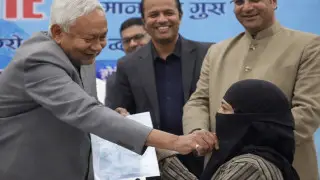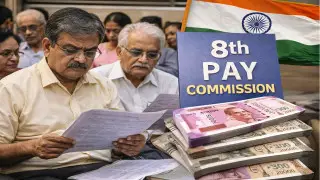
A five-judge constitution bench of the Supreme Court led by the Chief Justice of India (CJI) DY Chandrachud resumed engaging in deliberations over a batch of petitions contesting the abrogation of Article 370 and the Jammu and Kashmir Reorganisation Act, 2019.
This act led to the division of the erstwhile state into two union territories – Jammu and Kashmir, and Ladakh.
The Supreme Court on Monday dismissed a petition seeking validation of the constitutional abrogation of Article 370, which granted special status to the erstwhile state of Jammu and Kashmir.
The Supreme Court bench, presided by Justices Sanjay Kishan Kaul, Sanjiv Khanna, BR Gavai, and Surya Kant, resumed the hearings related to the challenge of Article 370’s abrogation.
Senior advocate Dinesh Dwivedi, arguing against the abrogation, started by highlighting the significance of the standstill agreement as a precondition for the merger letter between the princely state of Jammu and Kashmir and the Dominion of India.
According to the Cabinet Mission Memorandum and the Indian Independence Act, states except Kashmir acceded through agreements ceding their powers.
Dwivedi argued that the merger letter accepted the suzerainty over Jammu and Kashmir with specific conditions. He said that Kashmir’s accession was distinct and was based on negotiations.
Dwivedi continued, informing the bench that Jammu and Kashmir’s merger with India was unlike that of other states due to certain unique agreements.
“If you look at the aspect given on merger in my written reply, it will be clear that Jammu and Kashmir was never merged with India. His agreement with India was different. While other states gave up all their powers and merged with India. This is clear in the merger deed. Kashmir acceded differently. Rest of the states concluded standstill agreements before 1947. Because the standstill agreement was a precondition to accession. Initially, all Indian states were promised that they had have their constitutions. But through negotiations this was taken up,” Dwivedi said.
Dwivedi also highlighted that Jammu and Kashmir’s internal sovereignty remained distinct. He stressed that Article 370 did not cease to exist when other states merged, and further that while Kashmir’s accession was unique, it did not result in a loss of internal sovereignty.
“The conditions added in favour of Kashmir – that we are not bound by the [Indian] Constitution or the future constitution, the internal sovereignty rests with the ruler, the union of India cannot acquire land in Kashmir these were different… Kashmir didn’t lose all internal sovereignty just because it acceded. Neither inclusion in Art 1 or the schedule could result in loss of internal sovereignty. All the powers conferred under [Article] 370 ceased to operate when the constitution was made. In that context we have to keep in mind the object of 370 and commitments made,” he continued.
Dwivedi also underscored the significance of the Constituent Assembly’s role and the intentions behind Article 370.
Justice Sanjiv Khanna highlighted the need to consider the entire context of debates while interpreting the Constituent Assembly’s discussions.
“Our thinking, which we have been tuned to think for last 70 years, is that one nation, one constitution. But where is that prescribed?” Dwivedi told the bench.
#WATCH | National Conference leader Omar Abdullah on SC hearing petitions challenging the abrogation of Article 370; says, "We are fighting & in hopes of getting justice…We have hired the best lawyers. We hope that the Judges are convinced with our arguments. It is a long… pic.twitter.com/nDIEvuJNgS
— ANI (@ANI) August 17, 2023
Senior advocates CU Singh and Sanjay Parikh are scheduled to continue the arguments for the petitioners on the eighth day of the hearing on Tuesday.













Copyright © 2025 Top Indian News
